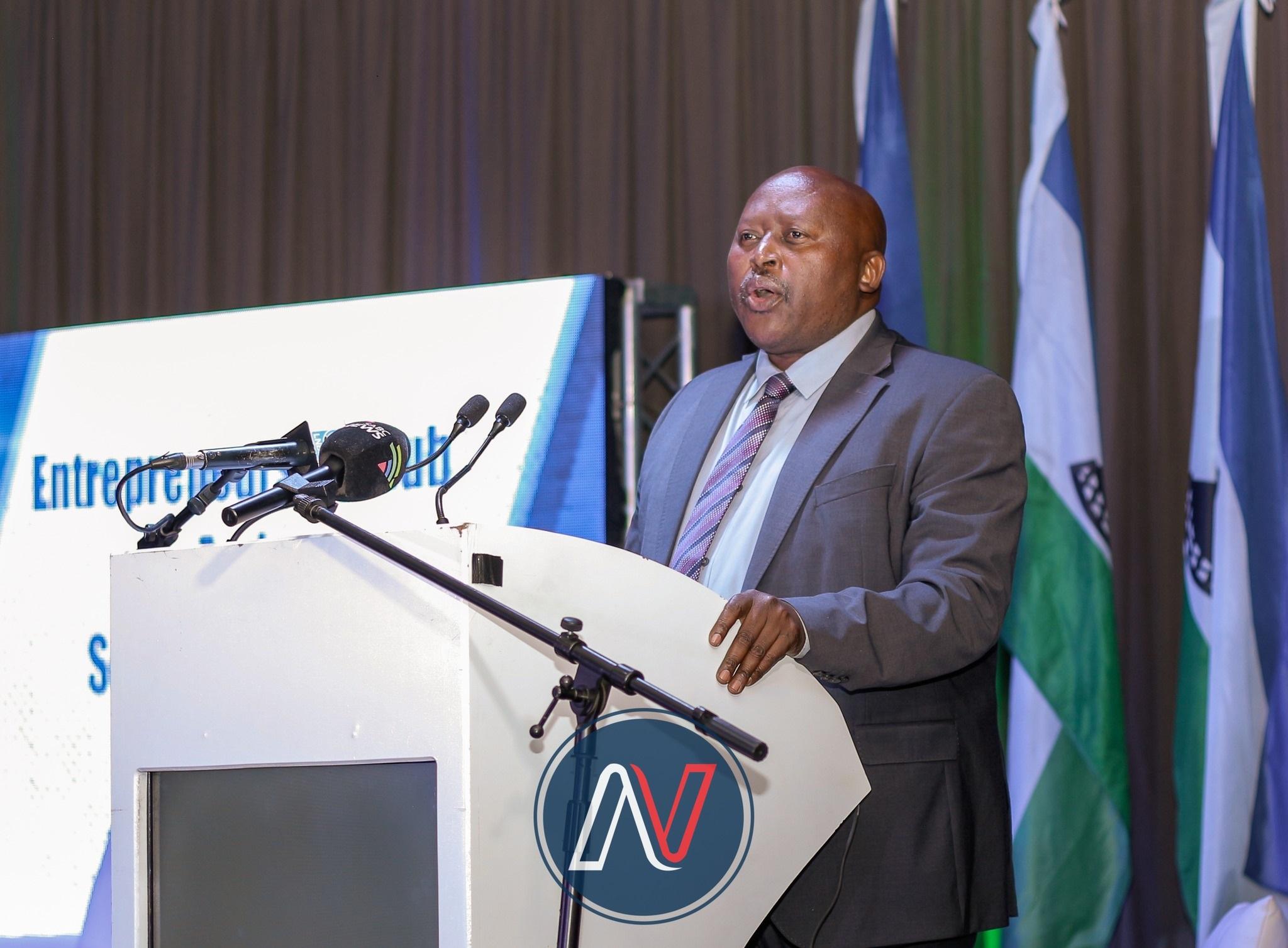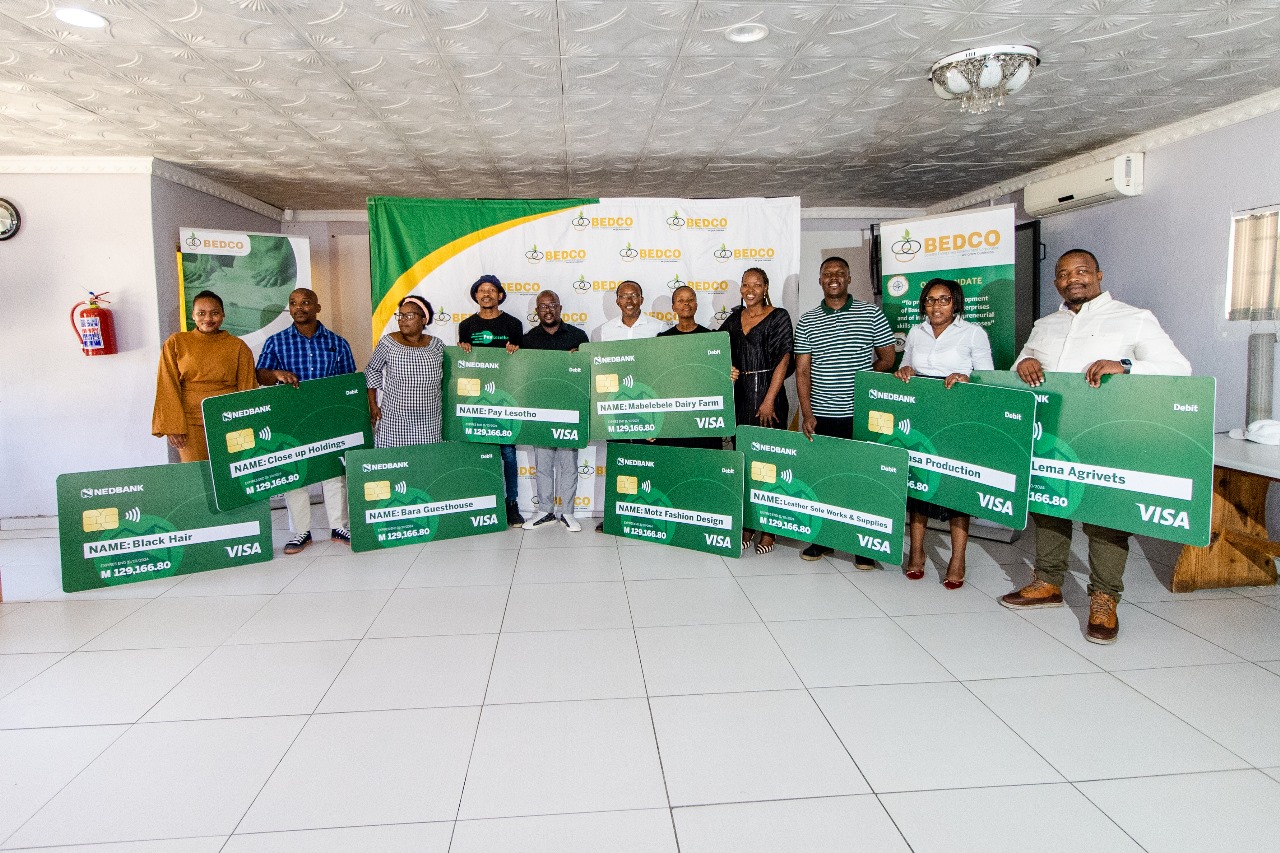2ND CALL FOR EXPRESSION OF INTEREST
FOR
INCUBATION FOR LESOTHO FRUIT FARMERS
LESOTHO HORTICULTURAL HUB & TRAINING CENTRE

Government of Lesotho
LESOTHO COMPETITVENESS AND FINANCIAL INCLUSION (CAFI) PROJECT
2ND CALL FOR EXPRESSION OF INTEREST
FOR
INCUBATION FOR LESOTHO FRUIT FARMERS
LESOTHO HORTICULTURAL HUB & TRAINING CENTRE
The Government of Lesotho, through the World Bank-financed Competitiveness and Financial Inclusion (CAFI) Project, intends to support the establishment of a Horticulture Incubation Facility, with the objective of scaling and replicating existing deciduous fruits commercial orchards through attracting new investments. The pilot farms established under the first and second World Bank financed Private Sector Competitiveness and Economic Diversification projects (PSCEDP) have successfully demonstrated the commercial potential to produce deciduous fruits and vegetables in Lesotho for both the domestic and export markets and there is already significant interest from investors in commercial horticulture. However, these investments can only be realized with a coordinated effort to land administration challenges including the availability of land parcels of adequate size for commercial scale production and adopting a transparent leasing system to achieve a credible land ownership. There is also a need for coordinated infrastructure investments in irrigation, electricity, roads, packhouses, phytosanitary inspection systems and grading, and private-public partnerships to deliver effective training and skills, impactful extension services, and support for contract farming and out grower schemes in partnership with other initiatives in the country including the proposed support under the new Millennium Challenge Corporation project.
The objective of this subcomponent of the CAFI Project is to provide support for scaling commercial horticulture farming in Lesotho building on the experience of the current pilot commercial farms and addressing gaps in the value chain, access to suitable land, infrastructure, extension services, skills, finance, and markets while promoting climate smart agricultural practices. The possible areas of support include a technical assistance and training program that can be rolled out to competitively selected groups of eligible farmers (with viable plot sizes and other criteria) who are interested in replicating the proven experience of the three pilot commercial horticulture farms supported under the PSCEDP II. These farmers will be provided with training and technical expertise to develop and implement business plans that meet the requirements of commercial financing partners, which could be potential partners for the implementation of this activity.
The project will support a horticulture incubator/training facility and nursery in partnership with the National University of Lesotho (NUL) and Stellenbosch University in South Africa at an existing facility in Mahobong (which is owned by NUL) and located adjacent to the existing horticulture farms. This could potentially include co-location at the same facility of NUL managed horticulture research centre that is under planning for support through the World Bank’s Agricultural Productivity Program for Southern Africa (APSA).
The Project will facilitate the selection of an experienced Lead Horticulture Hub Manager (with a proven track record of managing similar programs) to establish and manage the Horticulture Incubator/Training Facility and deliver support to the selected farmers under an open and transparent international competitive bidding process and based on clearly defined outputs and outcomes.
The program will consist of two phases:
- Phase 1: A pre-incubation program of 6-months for farmers / farmer groups that comply with the eligibility criteria. During this phase the beneficiaries will receive training on amongst others: Soil preparation, irrigation, tree establishment, maintenance of trees, recordkeeping, basic agric-econ concepts, logistics, and marketing. After this phase the top 15-20 farmers that demonstrated their commitment and potential to grow tree crops will be selected for full incubation.
- Phase 2: Full incubation. This phase will consist of:
- Signing a contract with the incubator – min 5 years
- Loan funding will be facilitated (CAPEX & OPEX)
- Identification of suitable soils, orchard layout & irrigation design
- Advanced Training – (see Pre-incubation training)
- Technical support (irrigation, plant nutrition, pest control, tree maintenance – pruning, infrastructure maintenance
- Seedling orders for vegetables (cash crops) and orders for fruit trees
- Collective sourcing of inputs for orchard establishment & maintenance
- Land preparation and construction of trellising and nets (by farmer with support)
- Establishment of new orchards and rehabilitation of existing orchards (if necessary)
- Access to a mechanisation pool
- Grading, packaging, cold storage, and processing (lower grades)
- Facilitate market access (local, regional, exports)
- Marketing logistics – produce to markets
- Business space and access to computers and the internet
- Information hub (research, technical, market intelligence)
ELIGIBILITY CRITERIA
Applicants (individual farmers or farmers groups) must:
- Have access to suitable land (owned, traditional or rental) for at least a period of 30-years if rented. Minimum of 5 ha but preferably 10 ha or more.
- Have access to good quality irrigation water that is adequate to irrigate fruit and vegetables (as cash crops) for the area specified above (about 6 000 m3 per ha).
- The access road linking the site with the main road should be in reasonable condition.
- The site should be close to electricity supply or other sustainable power alternatives for irrigation.
- In the case of farmers groups, they must have an existing legal entity (Coop or Company), or they must be prepared to establish such an entity.
- Must already farm with fruit trees or have the intention and commitment to establish and to farm commercially with fruit trees (mainly apples). However, it is recognized that farmers will also need cash crops (vegetables) in the short to medium term to overcome cash flow challenges until the trees are full bearing.
- Must be willing to share financial and production data with the project on confidential basis for Monitoring and Evaluation purposes.
- Full incubation beneficiaries must sign a contract with the incubator for a period of at least 5-years to commit to stay on the program and to market their crops facilitated through the incubator. The contract will be negotiated and available before incubation startup. The contract will also specify that farmers must pay a fair levy per kg (to be determined) of products marketed through facilitation of the incubator once the trees / vegetables are harvested.
- Commit to full-time involvement and commercial business.
- Experience in commercial farming will be an added advantage.
Format of EOI submissions
The applicants should include at least the following information in their submissions:
- Applicant information including name, address, phone, e-mail, website (if any), project manager (if different from applicant).
- Highest educational qualifications
- Language literacy level – Sesotho and English (read, write)
- Mathematical literacy (low, medium, high); and
- A response to each of the 10 selection criteria provided.
Further information and suitability maps can be obtained at the address below during office hours [08h00 to 16h30 local time].
Expressions of interest must be delivered in a written form, in sealed envelopes labelled “Incubation for Lesotho Fruit Farmers” to the address below in person or by e-mail by Monday, 19th June, 2023 at 16h30. E-mail submissions should be sent to mpotsane@psc.org.ls with a copy to rrapakeng@psc.org.ls as a single attachment.
The Project Manager
Lesotho Competitiveness and Financial Inclusion Project
1st Floor ‘Matanki House
P.O. Box 747,
Maseru 100
Lesotho
Tel.: (+266) 22 315 100
N:B This call for expression of interest is ONLY open to the farmers who DID NOT apply in the first call.

Your Trusted Source for News and Insights in Lesotho!
At Newsday Media, we are passionate about delivering accurate, timely, and engaging news and multimedia content to our diverse audience. Founded with the vision of revolutionizing the media landscape in Lesotho, we have grown into a leading hybrid media company that blends traditional journalism with innovative digital platforms.










